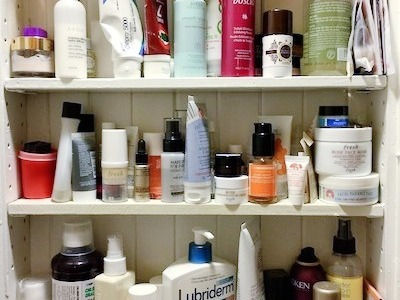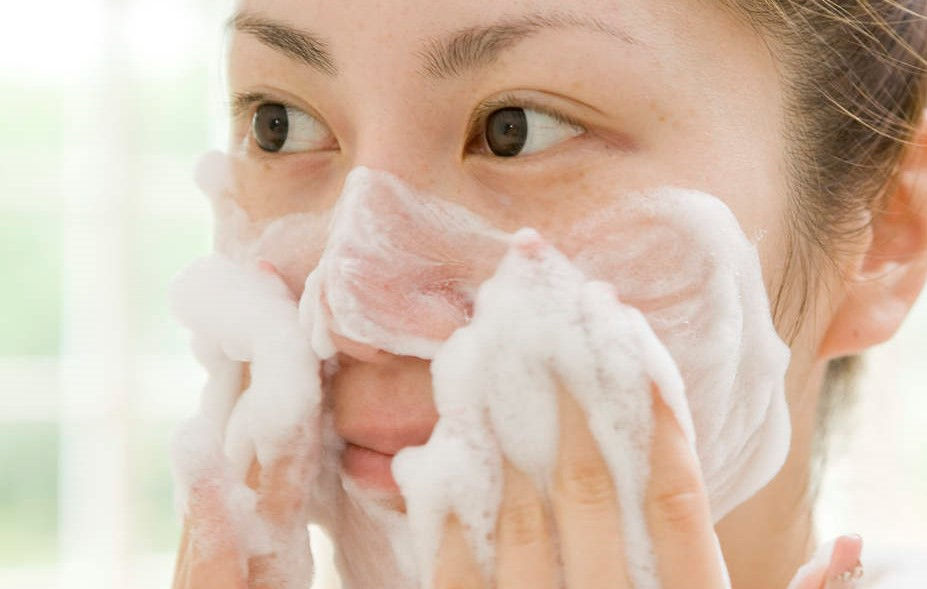How to build up a healthy skin barrier
- dcraftsaesthetics
- Jul 31, 2019
- 5 min read
The outermost layer of the skin acts as a barrier to keep moisture in and to act as a guard to prevent unwanted external substances from being absorbed. A thin, weak or damaged skin barrier allows irritants to penetrate the skin which can result in all sorts of skin problems from inflammation, spots and dryness to more serious disorders caused by skin sensitivities and bacterial and viral infections.
If your skin barrier is working well, it will retain water effectively, maintaining a good hydration balance, and be resilient yet flexible. It will have the right amount of lipids and Natural Moisturising Factor and is likely to smooth, hydrated and radiant. If you have a poor skin barrier function, your skin is likely to be sensitive and can appear dry, dull and flaky.
Why do some people have a weaker barrier? Environmental stressors, age and genetic skin colouring can all play a part in the health of your skin barrier. The barrier weakens with age and the lighter your skin, the thinner your skin barrier will naturally be, so this is why pale skins tend to be more prone to rashes, redness and irritation. The common practice of over-cleansing, along with the popularity of exfoliation using harsh scrubs and acid based skin products, can damage and disturb the delicate balance of the skin barrier affecting it's PH, beneficial bacterial population and lipid content, all leaving it exposed to external irritants and moisture loss.
When the skin breaks down due to a compromise in its barrier, most peoples skin responds the same way by becoming inflamed. Inflammation is typically seen as redness of the skin, dryness and flakiness, and potentially itching or stinging and burning. If you have acne or other skin disorders such as rosacea or eczema, you may experience flare ups and additional irritation.
Unfortunately, skin barrier problems can be a never-ending cycle - once you’ve had a reaction to a product, your skin’s uppermost layer is compromised, increasing the potential to experience even more problems. Worse still, the steroid creams that are often prescribed for severe irritations, eczema and allergic reactions cause a thinning of the skin which, while reducing the inflammation, leave you vulnerable to further irritants. So how can you build up that all-important surface layer to keep your skin looking and functioning at it's best? ...
1. Pare down your skin care routine
With the huge amount of skin care advise and different products available, it's easy to find you've developed a really complicated routine using lots and lots of products.

Go back to basics and avoid over complicated routines using too many skin care products, especially those that contain astringents like alcohol or witch hazel or harsh acid based products.
Avoid foaming cleansers as these usually contain sulphates which reduce the skins Natural Moisturising Factor stripping it of its hydration and if your skin is already dry and damaged, gentle cleansing oils are ideal as they can prevent further dehydration of the skin and help to repair the lipid barrier. Reducing or eliminating the use of mechanical exfoliators and oil stripping face masks are a good idea too.
2. Be wary of exfoliating
Scrubs, cleansing brushes and cloths and strong acid based cleansers and toners can damage the skin barrier. In addition, professional treatments such as microdermabrasion and microblading, if not done correctly or performed too frequently, will have a detrimental effect and increase the risk of developing problems. I'd recommend cutting back on anything designed to thin the protective layer of the skin (known as the stratum corneum), as although gentle exfoliation can be beneficial in increasing cell turnover, over doing it will potentially thin this layer too much and leave your skin weakened and dehydrated.
3. Use the right skin care ingredients
Read the labels to see what your products contain. The skin health basics are antioxidants and retinols, however, if your skin barrier isn't functioning well you may find both of these can cause irritation. To build up your skin barrier niacinamide is a great ingredient to try as it boosts ceramide production, thereby improving lipid barrier function. By pre-treating with this first, I find my patients can often then tolerate more potent active ingredients such as retinoids. Using a moisturiser which contains essential fatty acids, especially linoleic acid as it's an omega 6 acid we can't produce ourselves, helps repair barrier function and is an effective moisturiser - this essential lipid required to reinforce the delicate membranes and regulate the moisture content of the skin. Oils containing linoleic acid have also shown to balance sebum production in acne prone skin.
4. Avoid disruption of your PH balance
The skin barrier has a finely tuned PH balance of around 5.5 and this needs to be maintained so that the beneficial bacteria needed to keep skin healthy can thrive.

Detergents, such as Sodium Lauryl Sulfate, found in foaming skin cleansers will disrupt the PH balance by having an alkalising effect on the skin and reducing the ability of the good bacteria to do their job. They also strip the skin of it's natural oils, leaving the barrier dry, exposed and susceptible to irritation. Alphahydroxy acids, like salicylic acid for example, should also be avoided or used rarely, as these remove the top layers of skin and again, alter the skins PH balance.
5. Don't use hot water to wash
Hot water will strip the skin, making it feel tight, dry and potentially irritated - all signs that the skin barrier has been affected. Wash with tepid water only and don't put your face under hot shower water (or let shampoo run over your face for that matter!). Over-washing is one of the most common reasons for poorly functioning skin barriers and most people, unless your skin is particularly oily or acne prone, can benefit from only using cleansing products at night time before bed and just rinsing thoroughly with tepid water in the morning.
6. Protect skin from environmental damage
One of the easiest ways to protect your skin’s barrier is by wearing a daily SPF - exposure to UV rays can cause sun damage which will weaken it's protective function. Sun protection will also guard against other environmental stressors such as temperature and weather extremes and air pollution. Antioxidants in both skin care, and potentially in your SPF too, will also help to maintain a strong skin barrier by protecting it from free radical damage. Topical vitamin C serums are excellent for this and if you can find one with Ferulic Acid, even better, as this ingredient when combined with an SPF can increase protection from UV rays up to eight times.
7. Minimise stress
Stress is proven to slow down the bodies healing process and this includes skin barrier recovery, where chronic stress and poor stress management can leave the skin in a permanently weakened state.

The hormone cortisol is increased with psychological stress and this has been proven to have a detrimental effect on the skin barrier and so, building it up again is not as simple as just using the right skincare - it needs to be looked after from the inside out; think of it in the same way as you do your immune system - you need to feed its strength from all angles, mentally and physically.
8. Look at your diet
A poor diet will usually reflect in your skin as it will be one of the last body parts to receive any essential nutrients you digest - they'll be utilised by more important body organs first. You've probably heard it before, but a diet rich in fruit, vegetables and adequate amounts of good quality fats, proteins and carbohydrates will reflect in your skin. To really aid in repairing and maintaining a healthy skin barrier, eating omega-rich foods such as cold water fish, flax seed and walnuts will help to moisturise and sooth your skin from the inside out by preventing water loss that can lead to irritation and discomfort. Omega supplements can be helpful too, especially if you don't like oily fish.



Comments